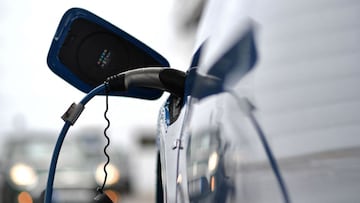How does $12,500 EV tax credit work?
A new bill would see motorists receive a tax credit for purchasing an electric car as President Biden looks to pivot the US economy towards green energy.


On Wednesday the Senate Finance Committee forwarded new legislation that would provide a significant increase to the amount offered in electric vehicle (EV) tax credits. The new system is designed to encourage consumers to buy electric cars and incentivise companies to utilise union workers in the United States.
The new EV tax credit would be worth up to $12,500 for motorists, a sizeable increase on the $7,500 currently on offer. However while the existing programme is available to cars of any value the new programme would only apply to vehicles with a retail price of less than $80,000.
The new EV tax credit is part of the ‘Clean Energy for America’ bill which secured a 14-14 vote in the Senate committee to see it advance on Wednesday. It must still pass a vote in the Senate and the House of Representatives before it is signed into law.
Boost for automotive industry from the new EV tax credit
The Biden administration has been keen to look to green solutions wherever possible in its post-pandemic recovery plan, judging that this is the perfect time to reshape American industry. The new EV incentives alone are slated to cost around $31.6 billion over the next decade.
Sen. @RonWyden's Finance Committee advanced legislation yesterday that would boost the federal EV tax credit to as much as $12,500 for EVs that are assembled by union workers in the US: https://t.co/n7DrXazujB via @davidshepardson
— Justin Gerdes (@JustinGerdes) May 27, 2021
Although the consumer will be able to receive a $12,500 upon purchasing an electric car, the eligibility requirements go far beyond the engine itself. The $7,500 figure for purchasing an EV remains the same, but there is now the potential for an extra $2,500 if the final vehicle assembly takes place in the US. Another $2,500 is applied if the workers involved in manufacturing the car have union representation.
The White House hopes this will help fulfil Biden’s campaign promise to introduce clean energy incentives while ensuring that workers are protected. The bill includes a condition that the credit will begin to phase out over three years once half of all vehicle sales in the US are electric.
Biden stresses the importance of clean energy
Alongside the EV tax credit is a 30% tax credit for manufacturers looking to produce green energy technologies at new or existing facilities. In the American Jobs Plan Biden has also proposed a $174 billion boost for electric vehicle infrastructure such as charging stations. This figure is thought to include around $100 billion for consumer rebates to further encourage motorists to leave the gas guzzlers behind.
The American Jobs Plan aims to meet the great challenges of our times, including the climate crisis.
— The White House (@WhiteHouse) May 25, 2021
We can deliver on sustainable housing, electric vehicles, a resilient electric grid – and the good-paying, clean energy jobs of the future.
“The American Jobs Plan will lead to transformational progress in our efforts to tackle climate change,” Biden said upon announcing the proposal last month. “It’s not a plan to tinker round the edges.”
Related stories
Speaking after the advancement of the Clean Energy for America bill, Lisa Frank of Environment America was optimistic about the impact the incentives could have:
“To meet the goal of achieving a carbon-free power sector by 2035 set by the Biden administration, we’ll need an incentive structure that reflects that goal. The Clean Energy for America Act would help us do just that by providing tax incentives for clean energy.”

